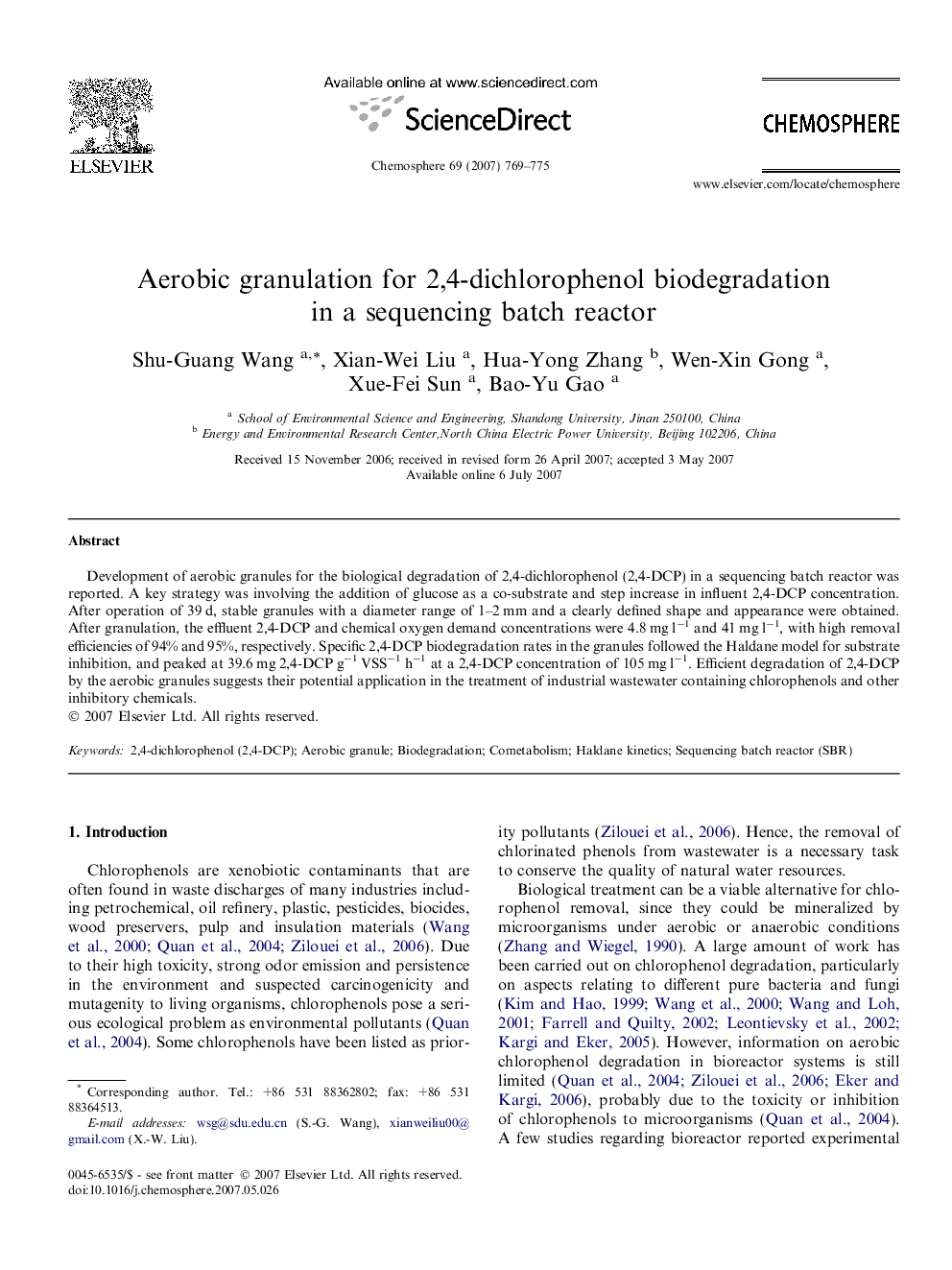| Article ID | Journal | Published Year | Pages | File Type |
|---|---|---|---|---|
| 4414739 | Chemosphere | 2007 | 7 Pages |
Development of aerobic granules for the biological degradation of 2,4-dichlorophenol (2,4-DCP) in a sequencing batch reactor was reported. A key strategy was involving the addition of glucose as a co-substrate and step increase in influent 2,4-DCP concentration. After operation of 39 d, stable granules with a diameter range of 1–2 mm and a clearly defined shape and appearance were obtained. After granulation, the effluent 2,4-DCP and chemical oxygen demand concentrations were 4.8 mg l−1 and 41 mg l−1, with high removal efficiencies of 94% and 95%, respectively. Specific 2,4-DCP biodegradation rates in the granules followed the Haldane model for substrate inhibition, and peaked at 39.6 mg 2,4-DCP g−1 VSS−1 h−1 at a 2,4-DCP concentration of 105 mg l−1. Efficient degradation of 2,4-DCP by the aerobic granules suggests their potential application in the treatment of industrial wastewater containing chlorophenols and other inhibitory chemicals.
